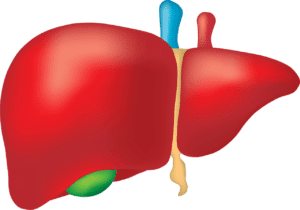Biliary Tract Cancer
What is biliary tract cancer?
Biliary tract cancer, also called cholangiocarcinoma, is a rare cancer that affects the tubes that carry bile from the liver to the small intestine. There are multiple subtypes, all of which are based on the location of the tumor is the biliary tract.
What are the symptoms of biliary tract cancer?
Symptoms often do not present until the later stages of the cancer, and they include:
- Jaundice
- Loss of appetite and weight
- Weakness
- Nausea
- Vomiting
- Fever
- Chills
- Itchiness
- Pale bowel movements
- Dark urine
- Pain on the right side of the abdomen
What causes biliary tract cancer?
Medical professionals are unsure of why this cancer occurs, but they have identified risk factors. These include certain conditions like primary sclerosing cholangitis, certain inherited conditions, older age, diabetes, biliary cysts, obesity, a history of inflammation in the bile duct, and exposure to Thorotrast.
How is biliary tract cancer diagnosed?
It is often difficult to obtain an early diagnosis for this cancer as it does not present symptoms in the early stages. Tests used in diagnoses are blood tests, physical exams, MRIs, CT scans, biopsies, x-rays, and laparoscopies.
What are the treatments for biliary tract cancer?
If the cancer is confined to just the biliary tract, the best option for treatment is surgery to remove the cancerous areas. If this is not possible, other options include chemotherapy and radiation.
Where can I find out more about biliary tract cancer?
Biliary Tract Cancer Articles


ICYMI: Keytruda and Chemo Combination Approved for Locally Advanced Unresectable or Metastatic Biliary Tract Cancer

NXP800 for Cholangiocarcinoma Earns Orphan Drug Designation

A Glimmer of Hope for Patients with Advanced Biliary Tract Cancer

ZB131 for Cholangiocarcinoma Earns Orphan Drug Designation

Durvalumab Combo Now FDA-Approved for Biliary Tract Cancer

Devimistat for Biliary Tract Cancer Earns EMA Orphan Drug Designation







